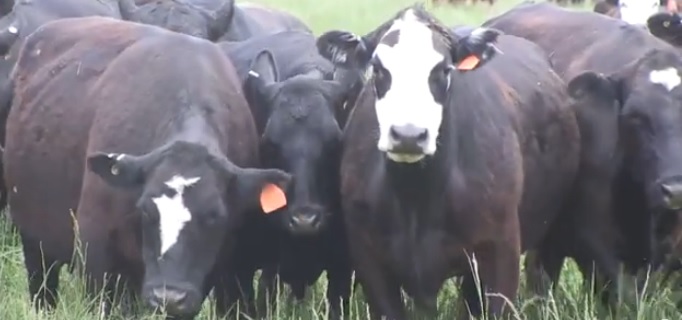
Agricultural News
Fundamentals of Managing Risk Through Good Herd Health
Tue, 17 Mar 2015 11:30:37 CDT
 The economics of ranching have changed, with more need to manage risk at today's prices, but the fundamentals stay the same. Bronc May, of Simplot Land and Livestock near Grandview, Idaho, talks about managing risk through good herd health.
The economics of ranching have changed, with more need to manage risk at today's prices, but the fundamentals stay the same. Bronc May, of Simplot Land and Livestock near Grandview, Idaho, talks about managing risk through good herd health.
"The first thing you've got to do on the ranch is you've got to have a live calf to make any money at all," May said. "So, that cow's got to be in good condition, you've got to take care of her, you've got to have her ready to conceive, and then when that animal is born, she needs to be in good enough condition and have all the right things in front of her so that that colostrum's good."
May's experience in feeding cattle tells him the cow's health impacts the calf's performance. Extra care up front can help avoid costly mistakes later.
"You can't put a dollar on a wreck, you know," May said. "Now, a good animal versus one that you think's going to get sick, is it two dollars a hundred, five dollars a hundred--you can't put a number on it because you don't really know the economical impact of that wreck. But, every time you doctor an animal or every time you have a pull, it costs. And that animal's not going to perform as well, that animal's not going to grade as well when he goes through the packing plant, and so we try to avoid as many wrecks as we can."
When it comes to preventing those wrecks, there's no one-size-fits-all. May suggests fitting cattle to their environment and being mindful of the true customers.
"Every rancher's different," May said. "He's got different circumstances, he's got different country, he's got different philosophies of what he thinks makes him money, so it's hard for a feedyard or something to come in there and tell him what to do. But, every one of them needs to know what the consumer wants."
That vision should keep everyone on the road to producing cattle that work better for all and beef as good as it gets.
"Anything that you have, if you don't keep working to make it better, and you level out, you're going to go downhill, so they've just got to keep going and going and going and make things as good as possible," May said. "And you can't even believe the genetic advancement we're going to make in the next fifteen years, so, I'm looking forward to it."
Click on the video below to watch this video news is provided by CAB and the American Angus Association.
WebReadyTM Powered by WireReady® NSI
Top Agricultural News
More Headlines...




















